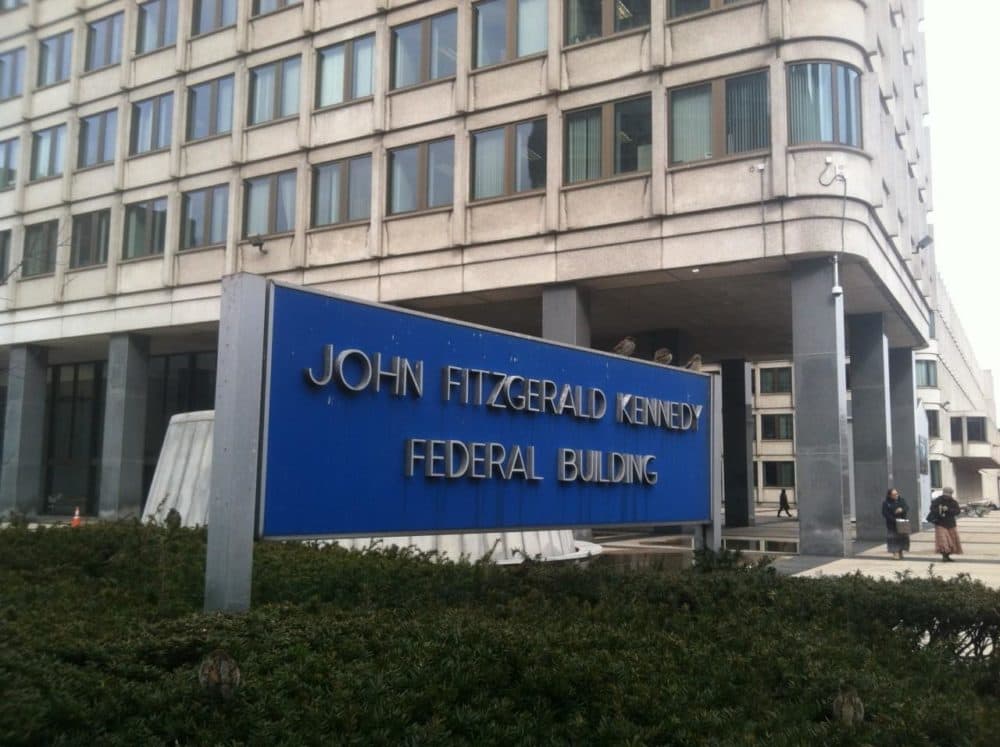Advertisement
A Federal Judge Orders Sweeping Changes To Bond Hearings In Boston Immigration Court

A federal judge in Boston ruled Wednesday that it's unconstitutional for the federal government to place the burden of proof on undocumented immigrants in bond hearings. The decision from U.S. District Court Judge Patti Saris will usher in sweeping changes to the way bond hearings are administered in Boston immigration court.
Saris ruled that asking an undocumented immigrant who is eligible for bond to prove why they are neither a flight risk nor a threat to the community violates the individual's due process.
Moving forward, the burden of proof will be placed instead on federal immigration officials, similar to how bond hearings are decided in criminal court proceedings. The new procedures go into effect on Dec. 13.
The ruling also mandated that immigration judges in Boston consider the individual's ability to pay when setting a bond amount above $1,500. Saris additionally ordered immigration judges to consider alternative conditions to detention, like GPS monitoring and orders of supervision that require regular check-ins with U.S. Immigration and Customs Enforcement (ICE).
The ACLU of Massachusetts filed the class action suit in June arguing the government is constitutionally required to prove why an individual should be deprived of liberty.
With her ruling Wednesday, Judge Saris agreed with that argument. The ACLU estimated hundreds of immigrants detained in New England could be affected by the ruling, and, for some, the decision would result in new bond hearings.
Dan McFadden, staff attorney with the ACLU of Massachusetts, called the decision a first-of-its-kind ruling in a class-action lawsuit — and a great victory for non-citizens.
"This case was about protecting a fundamental constitutional principle that the government cannot jail people without showing a reason," he said Wednesday. "I think if the due process clause means anything, it has to mean that."
In her ruling, Saris ordered the Boston immigration court to notify non-criminal immigrants currently in detention of her decision — both those individuals who have already received a bond hearing and those awaiting a bond hearing.
Additionally, Saris mandated that by Jan. 3 the federal government identify and locate all eligible immigrants who already have received a bond hearing under the previous process and remain detained as a result.
Saris also agreed with an additional argument made by the ACLU in the case.
She ruled the Board of Immigration Appeals (BIA), the top court in the immigration system, also violated the Administrative Procedures Act (APA) with its 1999 decision, which switched the burden of proof in bond hearings to the detainee.
The APA provides guidelines for federal agencies when developing and issuing regulations, like allowing the public to comment on proposed changes and overall transparency in the rule-making process. It's important to note that Saris' consideration of the APA's guidelines for the Board of Immigration Appeals could set a powerful precedent for others seeking to challenge similarly broad decisions.
This article was originally published on November 27, 2019.
